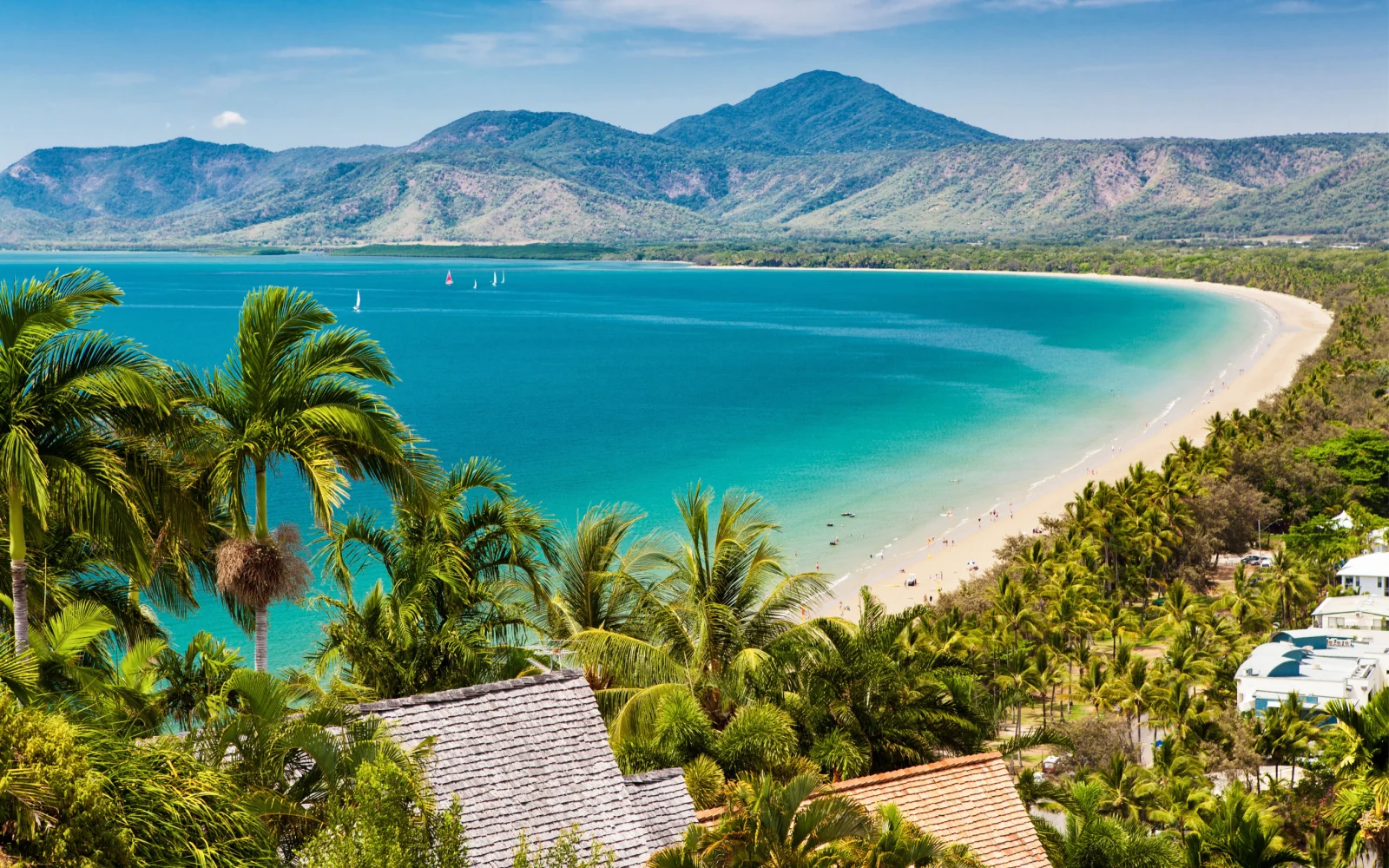Is Australia safe to visit in 2025?
Australia is generally safe to visit. It’s a stable, prosperous democracy with a low crime rate and few significant threats. While common crimes like pickpocketing, bag snatching, and vehicle break-ins do occur, they are mostly petty in nature.
Australia’s natural environment poses some risks, such as strong sun exposure and dangerous wildlife, but these can be managed with precautions like wearing sun protection and being aware of local wildlife safety advice.
Australia, the continent at the bottom of the world, receives over 8 million tourists during normal travel years. The country has so many things to see that many people are willing to make the trek with hours-long flights to explore it.
Nature lovers come to Australia for the scenery, such as Uluru and the stunning coastline, including rock formations such as the Twelve Apostles (one of the best hikes in the world).
But while this storied country is rich in culture, history, and breathtaking sights, is Australia safe to visit? Here’s our expert take.
Is Australia Safe to Visit in 2025?
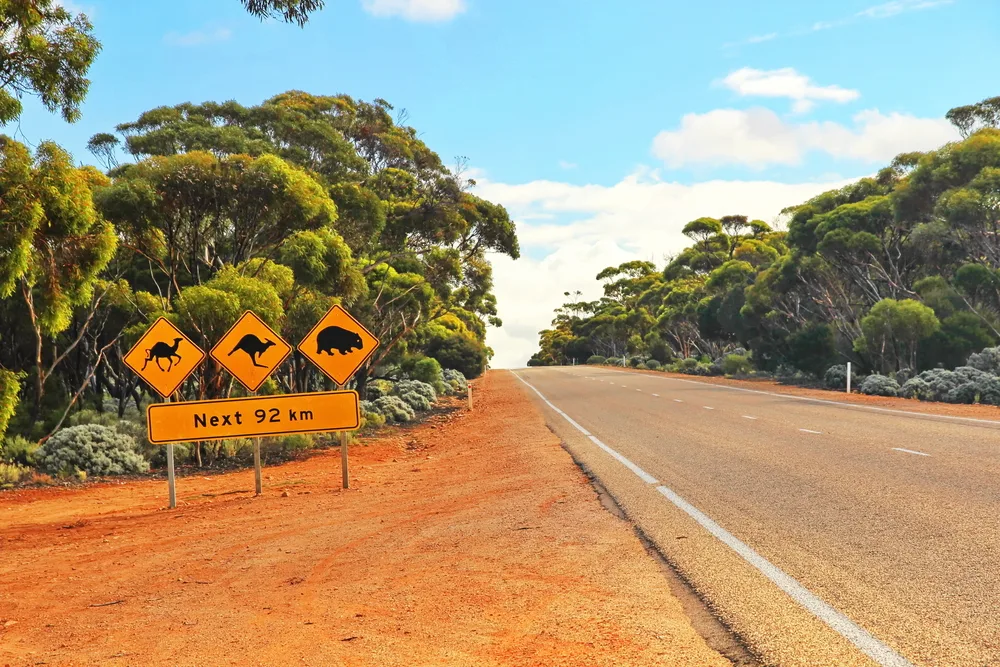
Totajla/Shutterstock
Yes. Australia is a very safe country to visit! It’s a stable, prosperous democracy with few threats, either external or internal.
The crime rate is also very low. Despite the jokes about Australian nature trying to kill you, a few precautions can even protect you from those dangers. When it comes to human danger, you don’t have a lot to worry about when you plan your trip to Australia.
The United States State Department has Australia under a Level One travel advisory, the lowest possible level, and just tells citizens to exercise normal precautions.
Most other countries also give their citizens the green light to travel to Australia. Australia does have some problems, just like any other place in the world.
Common crimes include
- Pickpocketing
- Bag snatching
- Online scams
- ID theft
- Vehicle break-ins
However, most of these incidents are petty in nature. Violent crime rates are very low and almost never affect tourists. Australia’s nature is a different story.
The same combination of extreme weather, rugged landscapes, and unique animal species that make Australia an interesting place to visit also make it dangerous sometimes for both locals and visitors.
One primary danger that you should be aware of is the sun. The sun in Australia is stronger than in most other locations due to the weather and the Southern Hemisphere’s closer proximity to the sun.
Melbourne’s official tourism board warns visitors that even 15 minutes without sun protection can cause damage such as heatstroke and severe sunburns.
Take precautions such as wearing UV-protective clothing, regularly applying sunscreen, and wearing sunglasses to protect your eyes.
Australia’s beaches are world-famous, but beneath the beautiful waves, there are often dangers. Australia’s beaches are often on the open ocean, meaning that the currents and riptides are often strong.
The Australian government advises visitors to swim only at patrolled beaches between flags that mark safe areas and to read up on beach conditions before going.
Be careful before jumping into a beach or waterhole that might be home to dangerous animals such as sharks and crocodiles. Australia is also home to many dangerous animals, and the jokes about nature in Australia are often true.
However, a bit of preparation can protect you from experiencing an animal bite. The Australian government also offers a list of tips for dealing with wild animals. For example, most people are scared of Australian spiders, but most species are harmless.
Don’t touch any spiders, and always shake out your shoes before putting them on to protect yourself from accidental bites. For most wildlife, as long as you don’t touch the animal, you should be safe.
If you do get bitten by an animal, seek medical attention immediately — Australia’s hospitals have antivenom on hand for all local species.
Finally, Australia experiences natural disasters that are increasing in intensity with climate change. Bushfires are common during warmer months and can be devastating.
In its advice for international students, the Australian government offers tips for staying safe during bushfires, including avoiding going into the Outback during extremely hot days and calling the emergency number 000 at the first sign of trouble.
Crime in Australia
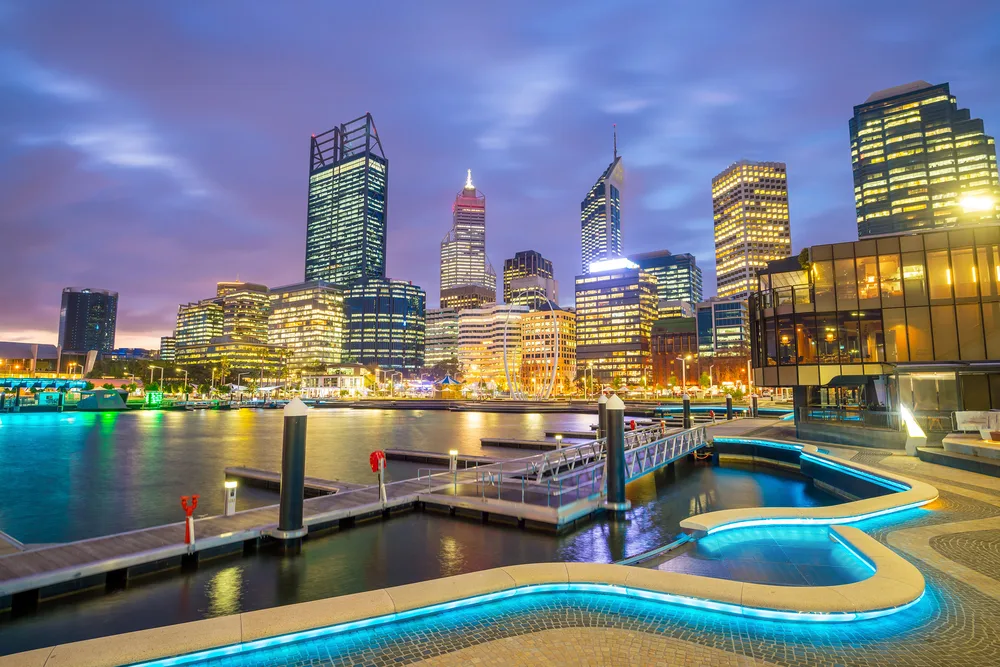
f11photo/Shutterstock
Crime is present in pretty much every country in the world, although crime rates may differ. However, in Australia, crime is not a major cause for concern.
Crime rates in this country are very low, particularly violent crime rates. If tourists do experience crimes while visiting Australia, they are often forms of petty theft.
A look at official crime statistics can help chase away any misgivings you had about traveling to Australia, as the country is so obviously safe when you look at the list. According to the Australian Bureau of Statistics, only 4.2% of Australians experience violent crimes each year.
Of these, 1.9% of Australians experienced physical assault, 2.2% experienced face-to-face threatened assault, and 0.3% experienced robbery. The rates of all personal crimes decreased.
The homicide rate in Australia is very low, at 0.82 incidents per 100,000 people. Most homicides arise from domestic violence incidents.
Homicides in Australia have decreased by over 50% over the past 30 years, showing that safety is trending positively in Australia. Property crime rates are slightly higher, with 9.1% of Australian households experiencing some form of property crime.
The most common were break-ins, followed by attempted break-ins and motor vehicle thefts. The rates of property crimes are also decreasing. The safety of Australia is backed up by the Global Peace Index.
On this ranking of safest countries in the world, Australia comes in at #27. While the index is not always a good measure of the situation on the ground, here it gives us insight into the situation in Australia and how safe the country is.
Petty Theft
The most likely crime you will experience while in Australia is petty theft. Although Australia is mostly safe, thieves take advantage of inattentive tourists as they do anywhere else.
The New Zealand government warns its citizens about different forms of petty theft that have occurred in Australia, including pickpocketing, bag snatching, passport theft, vehicle break-ins, and theft from hotel safes.
Thefts are common in busy touristy areas, especially in Sydney. Areas you should be careful of include Kings Cross, George Street, and Hyde Park.
Although most thefts occur at night, be vigilant during the day as well, especially in crowded areas. The Canadian government offers more in-depth personal safety tips to prevent thefts.
Never leave your valuables unattended, even in a place that feels safe such as a restaurant or a hotel lobby. You don’t need to invest in a money belt or other security-promising gadget, but make sure your valuables are reasonably safe in a front pocket or zipped bag.
Since passport thefts are common, try not to carry your passport around and use another form of ID as proof of age when going out. Break-ins sometimes happen at hotel rooms, rental accommodations, and rental cars.
Basic precautions can also help prevent these crimes. Lock all doors and windows for both accommodations and rental vehicles. Don’t leave your valuables in plain sight.
Finally, research your accommodations ahead of time, as some cheaper accommodations save on security and experience common break-ins. Some crimes happen before visitors even touch down on Australian soil.
Online scams for rental accommodations are common, where a potential host asks guests to make payment via an online transfer to an offshore account—research accommodations ahead of time before booking anything.
Alcohol-Related Violence
Although violent crime is rare in Australia, some tourists have had bad experiences when out drinking. Australian drinking culture leans towards binge drinking, and while most experiences tasting local drinks are laid-back, others are unpleasant.
The Australian National Alcohol & Drug Knowledge Base warns of alcohol-related violence—21% of Australians of drinking age have experienced an incident within the past year.
The most common incidents include physical abuse, such as assault, verbal abuse, or threats. About 50% of violent crimes reported in Australia are connected to alcohol consumption.
By all means, explore Australia’s famous nightlife, but refrain from binge drinking when you do so, even if the locals are overindulging. Go with a group of trusted individuals and promise to look out for each other.
If you notice that a situation feels tense, get out of the way and trust your instincts. Be sure to watch your drinks at all times, as drink spiking sadly occurs in Australian bars and nightclubs.
The UK government also warns about the potential for serious sexual assault, which has occurred against British citizens in the past. Many of these incidents are connected to nightlife, as predators use bars and clubs to find their victims.
Avoiding Bad Areas
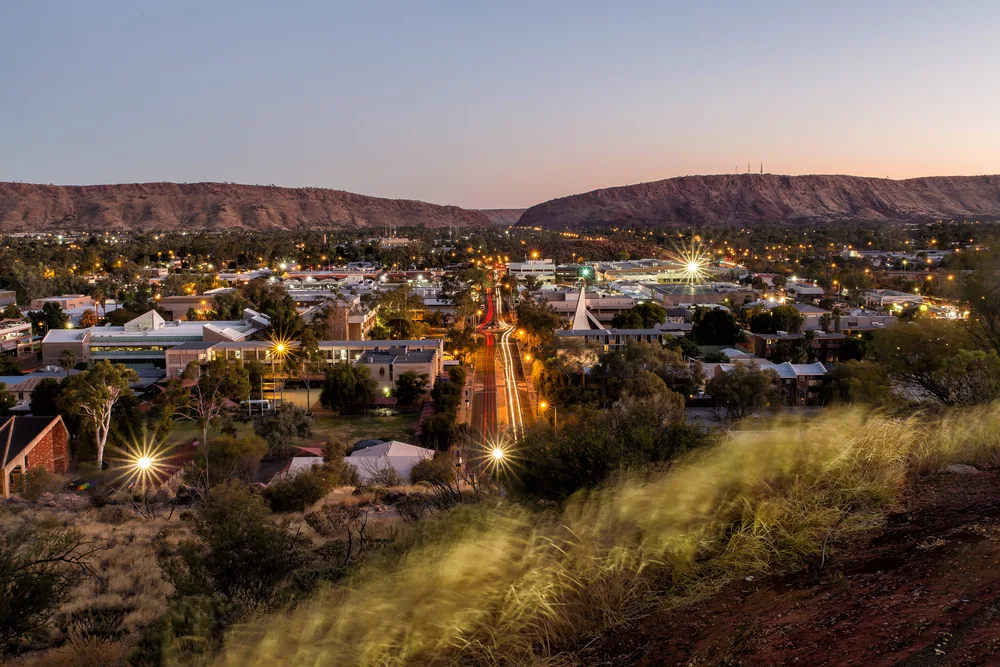
Coloursinmylife/Shutterstock
Like any country, Australia has a few bad areas. Australia’s remote Northern Territory is one of the more dangerous parts of the country, both because of the often-deadly forces in nature and because many of its major towns, such as Alice Springs, have some of the highest crime rates in the country.
Like any big city, Melbourne has some dangerous areas. Some sketchier areas include St. Kilda, Caroline Springs, and Melton, but in most neighborhoods anywhere in the world, there are good and bad areas.
Things to Consider
Here are some other safety tips for visiting Australia:
- Don’t carry all of your valuables with you, as that makes a potential theft more devastating. Also, try to spread out your valuables—for example, stash some emergency cash in a different pocket from your wallet so you always have a way to get home.
- The emergency numbers in Australia are 000 or 112. Memorize these numbers and call them in case of an emergency.
- Although there is a threat of terrorism, it is generally low. For extra reassurance, you can check the Australian government’s official advice levels before traveling.
Frequently Asked Questions
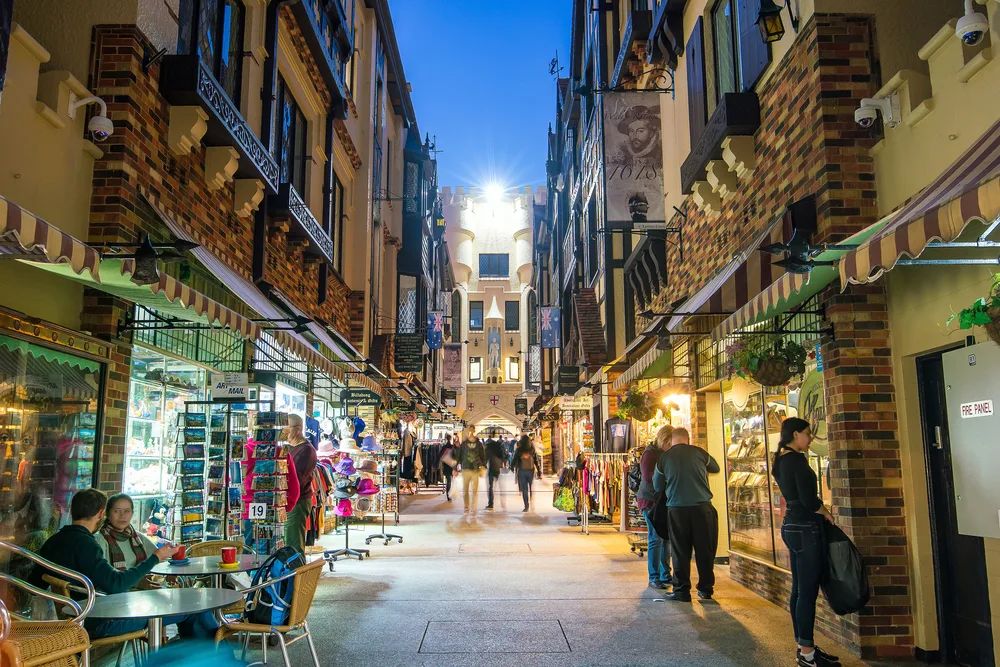
Perth, Australia – July 14, 2017 : London Court, shopping arcade located in Perth CBD, Western Australia, was built in 1937 for residential and commercial purposes/f11photo/Shutterstock
Here are some other questions you may want to have answered before you visit Australia:
Is Canada or Australia safer?
This question is difficult to answer because Canada and Australia have similar safety levels. Both have low crime rates, low levels of civil unrest, and good security. Canada has had more recent terrorist events, but Australia’s risk of natural disasters is higher.
Is Australia safer than the USA?
People may be surprised to find out that Australia is safer than the USA. The crime rate in Australia is much lower, as is the threat of other forms of violence, such as terrorism. Australia’s nature is famously dangerous but so is the wildlife in parts of the United States.
Is Australia safe to walk at night?
For the most part, Australia is safe to walk at night. However, you should still take precautions such as sticking to areas that you know, only walking down well-lit streets, and being careful around people who have had too much to drink.
What is the safest city in Australia?
Canberra is the safest city in Australia, with the lowest crime rate. However, most of Australia’s major cities are safe, with low crime rates and exceptionally low violent crime rates.
Is it safe to sleep on the beach in Australia?
Yes, it is safe to sleep on the beach, and beach camping is a popular pastime for locals and visitors alike. However, you can only sleep in designated beach camping areas and may get fined if you pitch your tent elsewhere.
So, Is Australia Safe to Visit?
Australia is very safe to visit and worth the long trip Down Under! The crime rate is low, and most visitors have a good time as long as they take some precautions.
Even the famously dangerous nature is not much of a risk if you follow common-sense advice. So, with so much to see and do, what are you waiting for — book your trip to Australia today!



